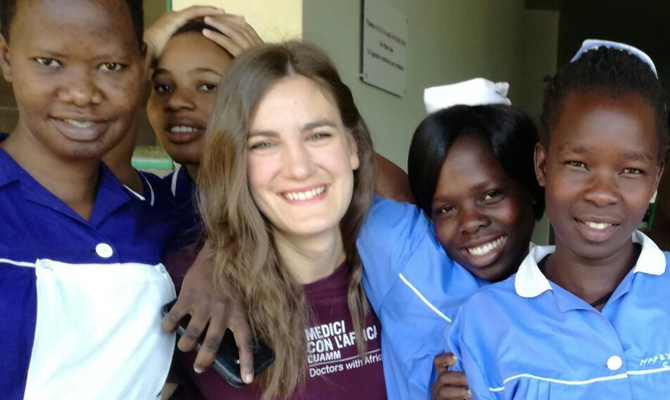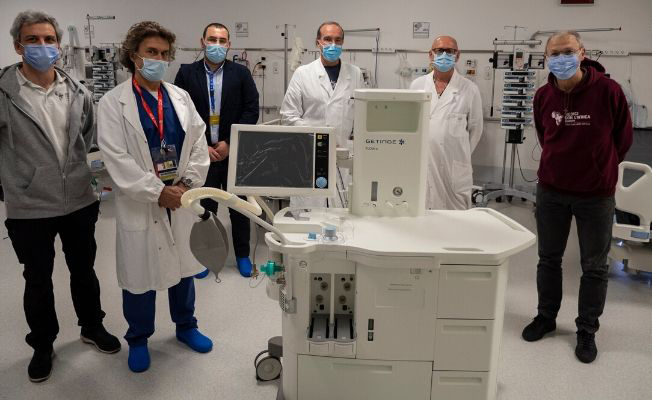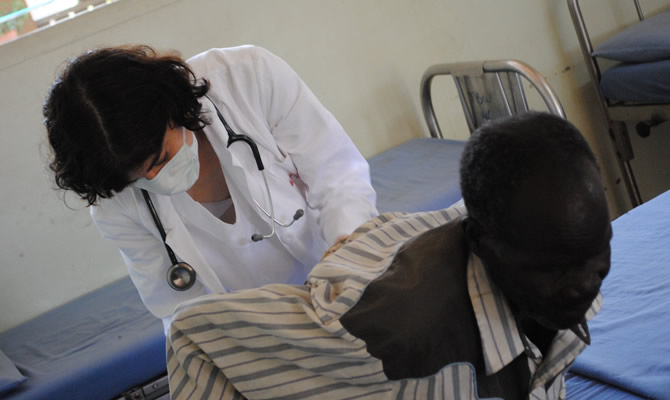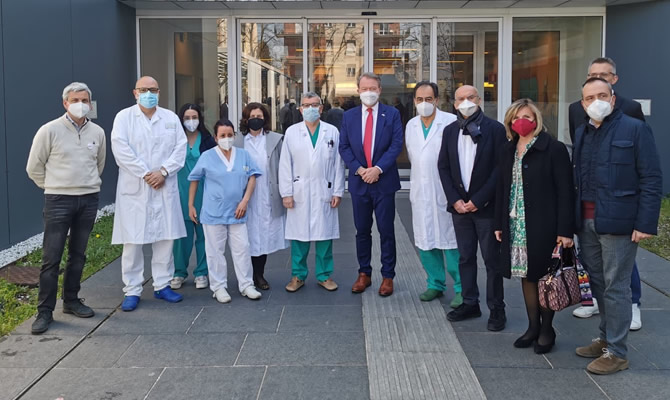Pillars of healthcare, even more important in Africa. Every day they work tirelessly, close to their patients, even at the risk of their health. Father Dante Carraro: «Without them our work would be impossible».
International Nurses Day is celebrated around the world on Tuesday 12 May, to mark the contribution that nurses make to society, and this year in particular the World Health Organization has decided to dedicate 2020 to the work of nurses and midwives.
Nurses have always been on the front line, around the world, curing patients, especially in these months in which the healthcare systems are increasingly put under pressure by the Coronavirus emergency. Africa is no exception and it starts from an even more uncertain situation.
Remembering the silent and essential work of nurses is important for Doctors with Africa Cuamm, that in Africa is present in 23 hospitals with 2,915 operators. Almost 1,000 nurses work in these facilities, supported by Cuamm and now threatened by Covid-19. Here Doctors with Africa Cuamm is working to provide personal protective equipment and introduce new prevention procedures, to protect healthcare staff particularly exposed to contagion.
If Coronavirus is the latest threat to the health of the African population, the previous challenges still remain pending, as Cuamm’s director, father Dante Carraro, explains:
«Like in Italy, even more so in Africa, nurses are the those who run the healthcare systems. From healthcare centres to day hospitals, to hospital wards, they work behind the scenes, often silently, but they’re essential for the few local doctors and for the expats. Their ability to communicate with patients – children and adults alike – also in the language of local communities, is essential. Without them, most of our work would be impossible: for this reason, it’s important to celebrate their role today. Without forgetting the many nurses and healthcare operators that in these last two months have worked without a pause in Italy, for the health of us all, even at the cost of their life»
Pamela in Central African Republic: «How wonderful the gratitude of relatives»
In the Paediatric Hospital of Bangui there are 205 nurses, who take care of the children coming from across the country for complicated operations, but many are also hospitalized for acute malnutrition, or for measles, which have hit the country between January and February. Pamela D’Ascenzo, nurse from Forlì (Italy), in Bangui has found very motivated colleagues, despite the challenges of their day-to-day work:
«Josette and Simplice are two of the best nurses I have worked with in these months. Josette is 38 years old and has five children: she has been working as a nurse for six years and every morning she comes a long way with great inconveniences to get to work. She says that the aspect she loves more of our work is the contact with people. Simplice is younger and has told me that he’s chosen this job to “save lives”, today for him the gratitude of the relatives of the children they heal is the best thing».
Ana in South Sudan: «We’re preparing for covid-19, but we need training»
Twenty-six years old, nurse from Barcelona, Ana Artes de Arcos has learned Italian while in Erasmus in Pavia and since she’s in Rumbek she uses it with English every day, working with the staff of Doctors with Africa Cuamm:
«In the last month we’ve taken an isolation area of the hospital, built for Ebola, but not yet used, and we’ve adapted it for the management of covid-19 cases, with oxygen concentrators and drugs. Luckily, for now we don’t have confirmed cases, but we’re doing all we can to prepare, with little equipment. As a nurse, I’m pleased that people remember the importance of our role, that is often underestimated. Hospitals wouldn’t run without trained nurses and here in South Sudan it’s even more visible. Most staff here has been trained on the job: they’re motivated, capable people, but maybe they cannot read or write, because instability prevents the training of people. When you have to give drugs or monitor patients, these shortcomings are visible and I’m afraid they make a difference».
Africa and Covid-19: protecting staff
To date almost 64,000 coronavirus cases have been recorded in Africa: 38,000 in Sub-Saharan Africa; 53 countries have been hit. Doctors with Africa Cuamm, Italian healthcare organization established in 1950, is present in eight: Angola, Ethiopia, Mozambique, Central African Republic, Sierra Leone, South Sudan, Tanzania, Uganda.
While we’re preparing for the outbreak of Coronavirus in rural areas as well, we know that nurses and doctors are more exposed to contagion, despite still being too little in Africa. This is the reason why we must protect them and equip them as best as we can against the epidemic.
Problems don’t stop with Coronavirus, they exacerbate. People fear the epidemic and hospitals as sources of contagion. Many women could opt for giving birth at home, for example, with great risks for their life.
In order to secure the hospitals and the communities where Doctors with Africa Cuamm is present, we need to have:
- Face masks, suits, face shields and disinfectant for healthcare staff, crucial but always too little;
- Infra-red thermometers, oximeters to measure blood oxygenation and oxygen concentrators to give a basic therapy for those in need;
- Curtains for triage and isolation units;
- Training of staff and communities for the management of Covid-19 cases.





